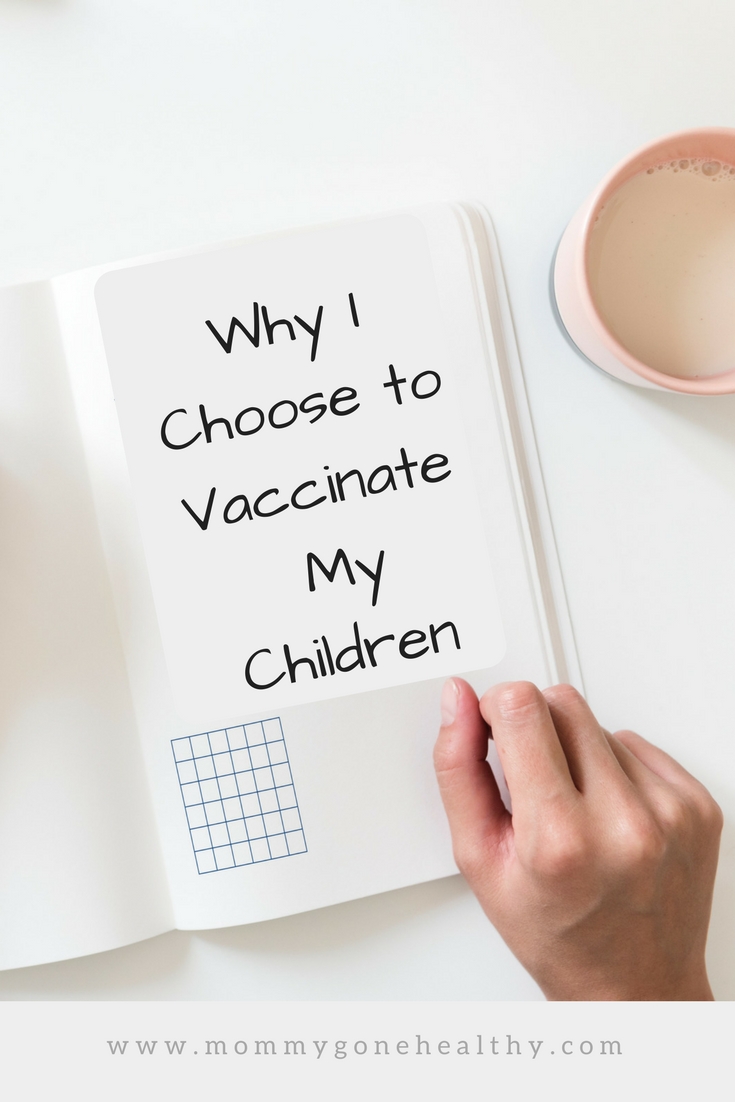I’ve partnered with I Vaccinate to share my story and this content is sponsored by I Vaccinate.
Hey lovely mamas! Today I’m venturing into a topic that tends to spur a lot of debate and with very strong opinions: vaccines. Before I get too far into it, I ask that we all remain respectful and loving towards each other. Being a parent is one of the most wonderful and one of the hardest things in the world. As parents, the health of our children is of the highest importance and we all make the decisions that we feel are best for our family. These decisions can be tough to make, especially when there is so much information out there (and even more incorrect or misguided information). Muddling through all the info can be difficult and confusing, especially in this digital age where we are bombarded with click-bait articles all the time. I wanted to open up a conversation about this topic, not shame anyone in any way (nor will I tolerate it in comments), and I welcome feedback and thoughts.
As a mom of two, my husband and I have immunized our children fully (and on schedule). We wholeheartedly believe in the power, safety and preventative measure of vaccines. I adhere to the recommended schedule and understand that there is a reason for giving vaccines in a certain time-frame in order to protect them before they are potentially exposed to diseases. I’ve partnered with I Vaccinate, to share the reasons why we have chosen to vaccinate our children. I Vaccinate provides information & tools based on real medical science and research to help Michigan parents protect their kids.

Below are a few of the reasons why I vaccinate our children:
It Could Save My Child’s Life

Vaccines are one of the greatest public health achievements of the 20th century! Vaccines have nearly eliminated so many diseases that used to claim the lives of many or leave them with severe health issues post-illness. Vaccines have completely eliminated diptheria, smallpox and polio and have nearly eliminated many others (polio, measles, rubella, mumps, HiB).
The Centers for Disease Control and Prevention estimates that for children born in the U.S. from 1994 to 2013, vaccination will prevent an estimated 322 million illnesses, 21 million hospitalizations and 732,000 deaths over the course of their lifetimes.
Before vaccines, parents in the United States could expect that every year:
- Polio would paralyze 10,000 children.
- Pertussis (whooping cough) would kill 8,000 infants.
- Measles would infect about 4 million children, killing about 500.
- Rubella (German measles) would cause birth defects and intellectual disabilities in as many as 20,000 newborns.
- Diphtheria would be one of the most common causes of death in school-aged children.
- A bacterium called Haemophilus influenzae type b (Hib) would cause meningitis in 15,000 children, leaving many with permanent brain damage.
I’ll Do Everything I Can To Keep Them Safe

I vaccinate my children because I want to take every step that I can to keep them safe. There are many things that I may not be able to protect my children from, but I’ll be sure to do the preventative measures I can to keep them safe and healthy. Just like other precautions (such as cabinets locks, gates, bike helmets), vaccines are a preventative measure to protect my children from vaccine preventable diseases. I cannot imagine one of my children contracting a disease that could have been prevented with a vaccine. I’d never be able to forgive myself for the possible life or health implications that could result from lack of immunization.
I Feel Responsibility For My Community (and Future Generations)

When a majority of the population receive and stay up to date on their vaccines, it provides herd immunity or an umbrella for those that may not be able to receive immunizations. When a person is vaccinated, they prevent disease from spreading to others in the community, including:
- Babies who are too young to receive vaccines
- Pregnant women
- The elderly
- Individuals who cannot be vaccinated for medical reasons, such as those with weakened immune systems, asthma, chronic illness, or undergoing treatment for cancer
Vaccines have reduced and, in some cases, eliminated many diseases that killed or severely disabled people just a few generations ago (i.e. smallpox or polio). If we continue to vaccinate (and vaccinate completely), future generations may not have to worry about some of the disease that we have today because they will be eliminated.
I Trust Science

Vaccines go through intense and rigorous testing before being approved for use. Before being released to the public for use, vaccines have been studied for 15 to 20 years on tens of thousands of participants. Currently, the United States has the safest, most effective vaccine supply in its history. Clinical trials are conducted to evaluate the safety and effectiveness of a vaccine before it can be brought to market. Vaccines are first tested in laboratory studies and animal studies. If the results indicate the vaccine is safe, additional testing in people must be done before the vaccine can be approved by the Food and Drug Administration.
While I have a background in public health and biology and do my own research, I can’t know everything. I look to authorities that I can trust. I trust the scientific method, our children’s doctors and the AAP (American Academy of Pediatrics) who recommend vaccination and who have made science and health their career and passion. There is continuous strong evidence that shows vaccines are safe and clearly worth the effort which gives me no reason not to vaccinate.
It Doesn’t Cause Autism
Let’s say it all together: vaccines don’t cause autism.
As someone who has multiple family members on both our paternal and maternal sides of the family with autism, this is something that I have certainly read deeply about. There is no medical or scientific research to show that vaccines cause autism. The one “study” that linked vaccines to autism was found to be a complete fabrication and has been studied over and over again. To read more scientific based studies that debunk the vaccine and autism link, please check out more HERE.
Almost 50% Of Michigan Toddler’s Aren’t Up To Date On Vaccines

In the last few years, Michigan has had one of the lowest vaccinations rates in the country. Below are a few statistics that have me both concerned and worried about the health of my children and their peers:
Young children less than 3 years old:
- Only 56.2 percent of Michigan toddlers aged 19 through 35 months are up to date on their vaccinations, according to data from MCIR from December 2017.
- In the U.S., 71.3 percent of children 19 through 35 months living in major cities are up to date on their vaccinations (7 series), compared to 55.8 percent in Michigan.
- In Michigan, 64.7 percent of 5-month-old children were up to date for the recommended vaccines, but this number drops to 54.4 percent for 7-month-old children, according to MCIR data from January 2018.
School-aged children:
- During the 2016-17 school year, Michigan had the 11th highest non-medical exemption rate in the nation for kindergartners, with 3.5 percent of parents simply choosing not to immunize their children.
- In 2017, Michigan had 23 counties with a vaccine waiver rate of 5 percent or more among kindergartners.
- Only 38 percent of Michigan teens aged 13 to 17 years are up to date on their vaccinations, according to data from MCIR from December 2017.
Yikes! For most vaccine-preventable diseases, when less than 90 percent of children are vaccinated in a particular community, these pockets of low vaccination create an environment where diseases can take hold and spread. This puts Michigan and my community at a higher risk for vaccine preventable diseases to spread (we’ve already had whooping cough outbreaks in 2017). These stats solidify my decision to vaccinate my children to ensure their health in the case of an outbreak.
For more information about vaccines, please check out I Vaccinate as they have a wealth of science-based information.



I don’t have kids, but if I do have them one day, I will be vaccinating them – I get the flu shot and other shots for myself every year too.
I love living somewhere we can all make the decisions that are best for our families and our children. The internet definitely is a blessing and a curse when it comes to all the information available.
It blow my mind that some people choose to against vaccination.
Even here in India we are taking vaccines very seriously. Infact, I was not aware flu vaccines need to be given every year before the on-set of the flu season, but ever since I did – we get it religiously done.
I would be worried too if I lived somewhere that had a low vaccination rate. Seems crazy to me that a lot of kids don’t receive any type of shots especially since most schools (at least in my area) won’t let your child start school without them.
Vaccines are a must for the little ones. My kids are all updated with their vaccination program. Great write up!
On point Mommy.
Vaccines are one of those things that are such a back and forth conversation. I definitely get them for my kids!
Sadly, you are very uninformed. The skyrocketing number of vaccine injured children can no longer be ignored (that is if you expect anyone to take you seriously). Hundreds of thousands of parents in this country report their child experiencing adverse emergency events immediately following vaccination. Many who quit walking and talking, and begin having multiple seizures on the same day with high fevers and high pitched screaming caused from brain swelling. Do you really think they are all making it up? There are hundreds of MD’s who question or no longer recommend vaccines. All of these parents who have had catastrophic events happen to their children once believed in vaccination and trusted their doctors to stay on the bloated schedule. You are only promoting the possible harm of more children by portraying vaccines as safe. They are not safe, and in many instances not effective either (huge outbreaks of whooping cough and measles occur in the fully vaccinated). Please continue to expand your research, your story here is not accurate to say the least. Vaccines carry a risk of injury or death…..it is irresponsible to suggest that all people should be vaccinated.
I agree! You can’t paint a simple picture that all vaccines are perfect for all people. It’s just as irresponsible to suggest that vaccines don’t carry heavy risks. The chicken pox vaccine wasn’t even created to eliminate disease. It was manufactured to lessen the economic impact of parents missing work to stay home with sick kids. Now, the problem with this particular vaccine is that the occurrence of shingles in children is increasing (but don’t worry because we can just inject them with another shingles vaccine…). Also, it leaves adults who have a more threatening case if they experience chicken pox past childhood at risk because immunity isn’t life long. This is just one example of a vaccine that has short term health benefits but potentially long term problems for the individual and the herd. Also, just look at its origin and tell me that the makers weren’t thinking about money just as much if not more than children. I think it shouldn’t be a badge of honor to say you have followed the vaccine schedule faithfully. It should be a badge of honor for any individual to feel the freedom to make the best decisions for a child. And if we are going to be a free nation then we should stop mandating and start educating with even, true information so that the decision can truly be about our children rather than tainted with any other possible motives.
To each there own. But I respect you for being respectul. I personally will never vaccinate myself or my children and have made the educated and informed decision to not do so.
as a pediatric nurse I saw several children die and more disabled by HiB before the vaccine became available in 1985. then this awful infection almost disappeared. now I am seeing children with the disease and hearing about deaths again. the Hib vaccine saves lives!
Excellent post Amber! I make sure everyone in our family is up to date, my daughter of course (who just got her Menactra and the MenB), and us adults too. We’re up to date on our Tdap booster and get a flu shot every year. #vaccinessavelives #Ivaccinate
Science is one aspect of bigger picture. A holistic approach should be looked at when considering vaccinations. How much of it is coming from fear and how much from love? If we truly believed in the power of our being then we would understand that the body is incredibly intelligent and it has everything it needs to function and heal. I believe Big pharma has an agenda and it’s to keep the system in a suppressed state. For example, if we look at herd immunity which is based in NATURAL immunity from a researcher in the early 1900’s named Hedrich, he states having up to 68 percent of children with a NATURAL immunity to a disease would prevent an epidemic and has nothing to do with vaccinated children. Big pharma took this old study based on natural immunity and hiked the number up to 95 percent of vaccinated children without a justification. It’s things like this that make me question our medical system.
This was a very lengthy conversation in our home prior to the birth of our daughter. My husband didn’t want to vaccinate, but I thought it very important. We both did tons of research. For me, it all boils down to the risk versus reward. Yes, there are risks to vaccinating – such as the few cases a year of children who have side effects, as mentioned in an above comment, but the reward far outweighs (for my family) the risks involved. Had we not vaccinated our daughter, and she “came down” with measles, or similar, I would never be able to forgive myself and would always question, “what if”. What if we had vaccinated? I’m thankful my daughter did not have any adverse effects, and I know she will be protected.
Thanks to medical science, our generation has not seen a major infectious disease take the lives of many. I think if we do, people will be knocking down doors to get their hands on the latest and greatest medicine to save their loved ones.
Thanks for your bravery in sharing why you chose to vaccinate your children. It’s not an easy topic to open up about.